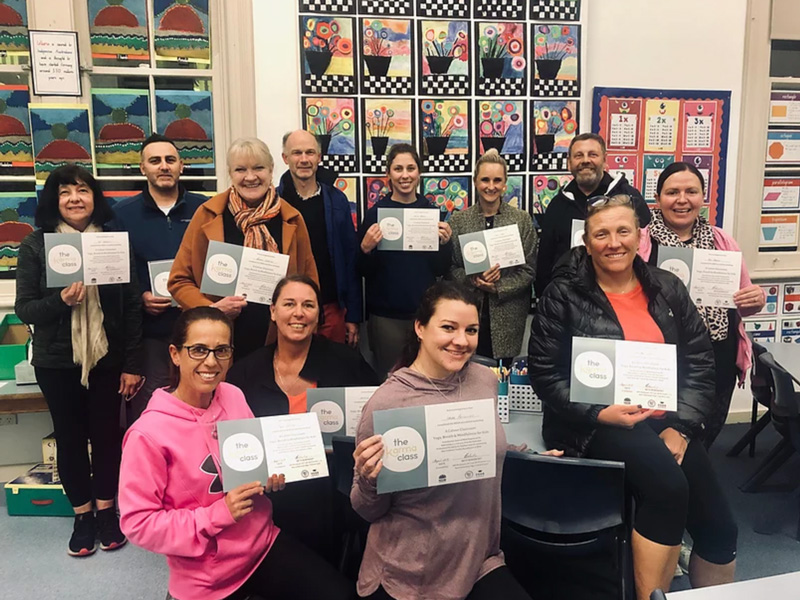Do teachers really need professional development?
In Australia, different state education boards have varying standards for how many hours and which activities are counted towards ongoing professional development. However, the one thing they all have in common is that to remain an accredited (registered) teacher, professional learning is a mandatory requirement.
In principle, most teachers agree professional learning is necessary to maintain education standards and to ensure that students are receiving the best possible learning experience and outcomes.
However, there seems to be a significant portion of PD that serves as "ticking boxes" or old ideas repackaged with the same outcomes. There seems to be a disconnect between the goal of professional development and actually giving teachers what they need.

Why we should listen to our teachers
Our teachers are beyond breaking point. Teacher burnout is at an all-time high. Poor pay, unpaid overtime, mounds of admin plus the failure to recognise the importance of teacher wellbeing, is driving an estimated 6 out of 10 teachers to leave the industry within their first 5 years. The added pressure of professional development - that may bring no real benefit – adds fuel to the fire and further encourages this trend.
By all accounts, classrooms are being increasingly staffed by teachers who are burnt out, unmotivated and simply going through the motions of getting through the curriculum. Substitute teachers are becoming more regular in many schools, especially in rural areas that are facing massive staff shortages.
This lack of teacher motivation and stability are having a significant impact on our children – academically and emotionally - and will continue to have adverse effects.
Although professional development is just one of the obstacles our teachers are facing, it begs the important question: What can be done to make it a worthwhile and beneficial experience; and makes their jobs easier, not harder?

The problems with current PD
Time constraints
In an already demanding job (with almost all teachers working extra unpaid hours before and after school), some are being pressured to engage in PD in their personal free time - over weekends or in school holidays.
Finding substitute teachers
In the event PD is offered during school hours, it is becoming increasingly more difficult (if not impossible) to find substitute teachers.
Cost
For the most part, schools are willing to pay for PD for their full-time staff. But, for many part-time teachers, schools will not pay for PD and teachers are required to pay out of their own pocket.
Lack of relevance
Often, the topics being covered in PD do not relate to the challenges teachers are facing daily in their classrooms and are not relevant to the subjects they teach.
Lack of follow-through
Some PD will be a one-off event with no follow-up support or resources provided to help the teacher implement what they have learned.
Repetitive and uninspiring
Teachers often find themselves attending the same PD year after year, with little added to the information or much inspirational new content.
Teacher wellbeing (or lack thereof)
Most teachers agree that in addition to teaching the curriculum, they are also managing challenging behaviours, student disengagement and an increase in students with special needs, with little, or no additional classroom support or training. Hence the growing burnout rates.
Alarmingly, there seems to be no accredited PD for teachers in the health and wellbeing space. With burnout rates the highest they have ever been, and mental health in a fragile state – especially post Covid – it’s a wonder that more is not being done to actively support our teachers’ wellbeing. If our teachers aren’t thriving, how can we hope our children will?
It's time to re-think PD
Aside from benefits to the students, recognised and accredited professional development should also include content that supports our teachers - PD that provides them with evidenced-based strategies to help manage an ever-increasing workload, disruptive classrooms, teacher burnout and overall student and teacher health and wellbeing.
If our teachers are offered PD that supports both them and their students, they will be better equipped to maintain a high standard of education that we want for our children within calm classrooms. They will also be more enthusiastic to attend PD courses and to implement their learnings in the classroom.
We need to empower our teachers with relevant, up-to-date, and engaging PD that keeps their passion for teaching alive, supports their wellbeing and reminds them how valuable they are.

How Karma Classrooms PD is supporting students AND teachers.
As a former classroom teacher , who now works with early childhood and primary schools to improve the mental and physical well-being of their students and staff, I am passionate about delivering professional development that is inspiring, informative, and, perhaps most important, easy to implement.
Our accredited PD workshop - A Karma Classroom - is a revolutionary PD experience designed specifically to improve the health and wellbeing of students and teachers through the transformative and evidence-based practices of mindful movement (yoga), breath and mindfulness.
Here's some of the reasons teachers love their experience:
- the program benefits students AND teachers
- it’s easy to learn and simple to implement
- it's easy to weave into the curriculum or lesson plans
- it requires no changes to the classroom layout
- receive incredible resources and ongoing support
- see immediate results
- it's engaging, fun and interactive
- it’s a professional development experience that ticks all the right boxes and we hope you’ll join us!
The Karma Class offers a range of health and wellbeing programs based on yoga, breath and mindfulness.
Designed specifically for early childhood, primary and high school students and their teachers.
Our Professional Development and Teacher Wellbeing courses:
- Teacher professional development NESA Accredited
- Whole-school professional development
- Teacher wellbeing course Elective PD
